Hello and welcome!
As I mentioned last week, we celebrate a Mass of the Holy Spirit at each of our seminaries to open the academic year and, last Friday, I had an opportunity to go to Pope St. John XXIII National Seminary in Weston to celebrate the Mass with them. 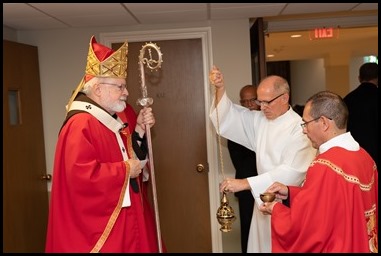
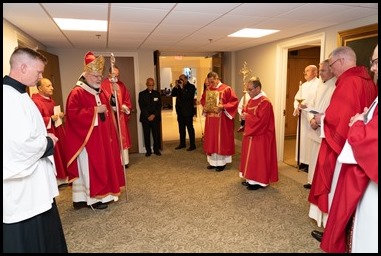 On Fridays, they always celebrate the liturgy in Spanish, which I think is an excellent idea given the fact that the Hispanic Catholic population continues to grow throughout the United States. This gives our seminarians an opportunity to become familiar with the liturgical language, the hymns and prayers of the Mass, in Spanish. It is a wonderful pastoral preparation for ministry in our archdiocese and in dioceses throughout the country.
On Fridays, they always celebrate the liturgy in Spanish, which I think is an excellent idea given the fact that the Hispanic Catholic population continues to grow throughout the United States. This gives our seminarians an opportunity to become familiar with the liturgical language, the hymns and prayers of the Mass, in Spanish. It is a wonderful pastoral preparation for ministry in our archdiocese and in dioceses throughout the country.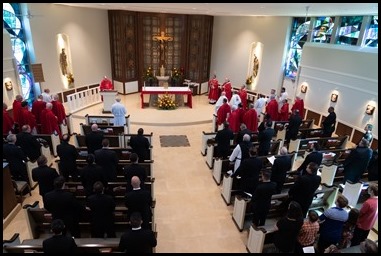
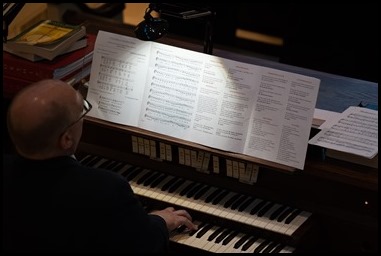
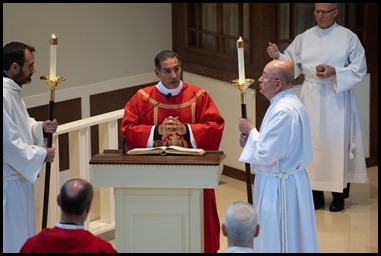
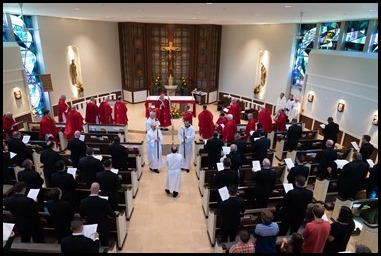
We are very pleased that the archdiocese has this ministry of forming men for the priesthood who are coming from careers to embrace their vocation later in life. As I always like to say, I have been bishop in four dioceses and, in each of them, I have had priests who were formed at Pope St. John Seminary. They have all been very, very fine priests.
Like many wonderful institutions in the Archdiocese of Boston, the seminary was the brainchild of Cardinal Richard Cushing. He was inspired by Pope St. John XXIII who, at the time of the Second Vatican Council, said that a vocation can come at any time in a person’s life. So, Cardinal Cushing returned to Boston and started this national seminary, naming it in honor of Pope John and providing the United States with an extraordinary institution that, for so many decades, has been preparing older men to embrace a priestly vocation. It is a great gift to the Church in our country.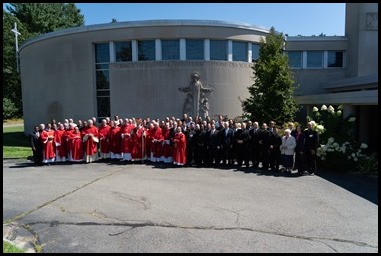
Monday was, of course, Labor Day and every year to celebrate the holiday Father Bob Casey, the pastor of St. Bridget and Gate of Heaven Parishes in South Boston, hosts a cookout for priests. It is always a great event attended by 80 to 100 priests drawn from a cross-section of the clergy – from the newly ordained to retired priests.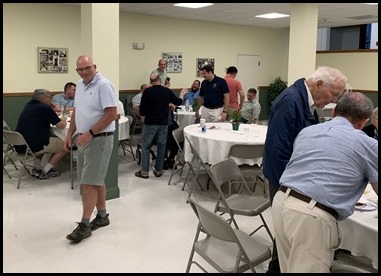
This year, because of the threatening weather, we brought our cookout inside, but it was still a very enjoyable time for all. We are very grateful for the wonderful spirit of hospitality that Father Casey and his parish always show to the priests of the archdiocese.
Very much like we do with the men who are to be ordained priests, on Wednesday I had a dinner with the men who are to soon be ordained permanent deacons along with their wives.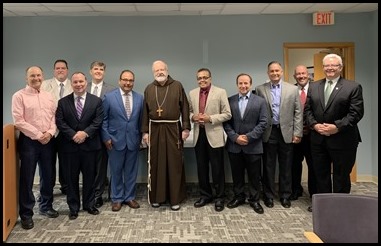
At the dinner, I presented them with the letters informing them of their future assignments. In recent years, our practice has been to give each new deacon both a parish assignment and an assignment to work in an archdiocesan ministry, such as pro-life or vocations. These will, of course, become effective following their ordination.
It was a wonderful evening, and I look forward to being together again with the deacon class at their ordination at the Cathedral of the Holy Cross on September 21.
Then, on Thursday, we had one of our regular meetings of the Massachusetts Catholic Conference, which is the public policy arm of the Church in the Commonwealth of Massachusetts.
The meetings, which are held at Pope St. John XXIII Seminary, bring together the bishops of the four dioceses of Massachusetts along with other members of our staffs to discuss different public policy issues that impinge on the life of the Church. They are always very enriching meetings and, at this gathering, we discussed implications of different legislative measures regarding abortion, physician-assisted suicide and immigration policies. 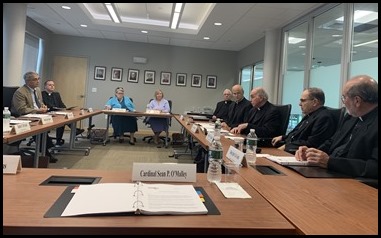
James Driscoll is our director of the MCC, and he and his staff do just extraordinary work on Beacon Hill. We are very blessed to have such a fine organization representing the four dioceses of Massachusetts, and one which is so committed to the social justice agenda of the Catholic Church.
Finally, I want to conclude this week by saying that my heart goes out to the people of the Bahamas, who have experienced such devastation and loss of life as a result of Hurricane Dorian. I have been in contact with the Church in the Virgin Islands and Puerto Rico and, though they suffered some damage, it is nothing like what the people of the Bahamas have experienced. It reminded me very much of our experience in the Virgin Islands with Hurricane Hugo which, like Dorian, was a very slow-moving storm. When Hugo hit the Virgin Islands, it was only going about 5 miles an hour and so was on top of us for about 24 hours. I believe that when Dorian reached the Bahamas it was traveling about only 1 mile an hour, so it brought down wave after wave of rain on them and the fierce winds persisted for hours. Of course, that is why they have had so many deaths and such utter destruction.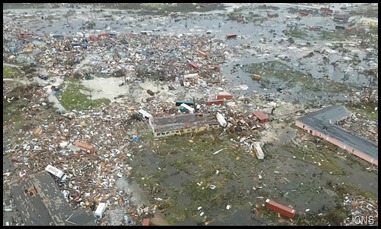
We are now looking for ways to bring some relief to the people of the Bahamas, but we continue to pray for them and all those who have been in the path of the storm.
Until next week,
Cardinal Seán
